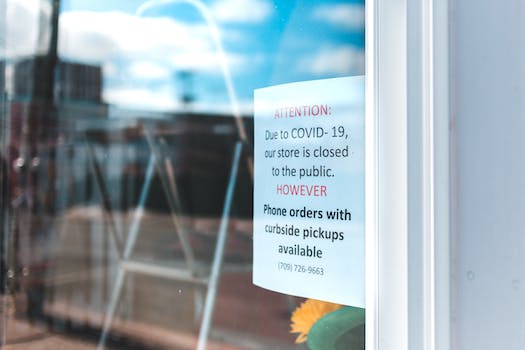

-
Table of Contents
Recognizing but Refusing to Repent: A Question of Willingness
Introduction
"Recognizing but Refusing to Repent: A Question of Willingness" delves into the complex issue of individuals who acknowledge their wrongdoing but choose not to repent for their actions. This thought-provoking topic raises questions about the role of personal willingness in the process of repentance and the potential consequences of refusing to do so. By exploring this subject, we can gain a deeper understanding of the complexities surrounding human behavior and the choices individuals make when confronted with the need for repentance.
The Consequences of Ignoring the Need for Repentance
Recognizing but Refusing to Repent: A Question of Willingness
The consequences of ignoring the need for repentance can be severe and far-reaching. When individuals recognize their wrongdoing but refuse to repent, they not only harm themselves but also those around them. This refusal stems from a lack of willingness to acknowledge their faults and take responsibility for their actions. In this article, we will explore the detrimental effects of this unwillingness and the importance of embracing repentance.
One of the primary consequences of refusing to repent is the erosion of personal relationships. When someone refuses to acknowledge their mistakes and make amends, it creates a barrier between them and the people they have wronged. This barrier can lead to a breakdown in trust and communication, causing relationships to deteriorate. Without repentance, the wounds caused by one's actions remain unhealed, leaving a lasting impact on both parties involved.
Furthermore, refusing to repent can have a detrimental effect on one's own well-being. By denying the need for repentance, individuals deny themselves the opportunity for growth and self-improvement. Repentance allows for introspection and self-reflection, leading to personal development and a deeper understanding of one's actions. Without this process, individuals remain stagnant, trapped in a cycle of repeating their mistakes and never learning from them.
In addition to personal consequences, the refusal to repent can also have broader societal implications. When individuals in positions of power or influence refuse to acknowledge their wrongdoing, it sends a message that accountability is not necessary. This lack of accountability can lead to a culture of impunity, where individuals feel they can act without consequences. This, in turn, can perpetuate a cycle of harm and injustice, as those in power continue to act without remorse or repentance.
Recognizing the need for repentance is the first step towards healing and reconciliation. It requires individuals to confront their actions and their impact on others. Repentance is not a sign of weakness but rather a sign of strength and humility. It takes courage to admit one's faults and take responsibility for them. By embracing repentance, individuals can begin the process of making amends and rebuilding relationships.
Moreover, repentance allows for forgiveness, both from others and oneself. When individuals genuinely repent, it opens the door for forgiveness and reconciliation. It allows for the possibility of healing and moving forward, both individually and collectively. Without repentance, forgiveness becomes elusive, and the wounds caused by one's actions remain open and festering.
In conclusion, the consequences of ignoring the need for repentance are significant and far-reaching. Refusing to acknowledge one's mistakes and take responsibility for them not only harms personal relationships but also perpetuates a culture of impunity. Recognizing the need for repentance is the first step towards healing and reconciliation. It requires individuals to confront their actions and their impact on others. By embracing repentance, individuals can begin the process of making amends and rebuilding relationships. Repentance allows for forgiveness and personal growth, leading to a more compassionate and just society.
Understanding the Role of Willingness in the Repentance Process

Recognizing but Refusing to Repent: A Question of Willingness
Understanding the Role of Willingness in the Repentance Process
Repentance is a fundamental aspect of many religious and spiritual traditions. It is the act of acknowledging one's wrongdoing, feeling remorse for it, and making a sincere effort to change and make amends. However, repentance is not always a straightforward process. Sometimes, individuals may recognize their mistakes but refuse to repent. This raises an important question: what role does willingness play in the repentance process?
Willingness is the key ingredient that propels repentance forward. It is the internal motivation that drives individuals to take responsibility for their actions and seek forgiveness. Without willingness, repentance becomes a hollow gesture, lacking the transformative power it is meant to have.
Recognizing one's mistakes is the first step towards repentance. It requires a level of self-awareness and honesty that can be difficult to achieve. Often, individuals may try to justify or downplay their actions, avoiding the uncomfortable truth. However, when one is willing to confront their mistakes head-on, they open the door to genuine repentance.
But recognition alone is not enough. It is the willingness to face the consequences of one's actions that truly sets repentance in motion. This means accepting the discomfort and potential backlash that may come with admitting wrongdoing. It requires a willingness to be vulnerable and to face the consequences of one's actions, no matter how difficult they may be.
Furthermore, repentance necessitates a willingness to change. It is not enough to simply acknowledge one's mistakes; true repentance requires a commitment to personal growth and transformation. This may involve seeking guidance from mentors or religious leaders, engaging in self-reflection, and actively working towards becoming a better person.
However, there are instances where individuals may recognize their mistakes but refuse to repent. This can stem from a variety of reasons, such as pride, fear, or a lack of understanding. In these cases, the absence of willingness becomes a barrier to genuine repentance.
Pride can be a significant obstacle to repentance. It can prevent individuals from admitting their mistakes and seeking forgiveness. Pride often convinces people that they are above reproach or that their actions were justified. In such cases, the individual's unwillingness to let go of their pride hinders their ability to truly repent.
Fear can also play a role in refusing to repent. Fear of judgment, rejection, or the consequences of one's actions can lead individuals to avoid taking responsibility for their mistakes. This fear can be paralyzing, preventing individuals from moving forward in the repentance process.
Finally, a lack of understanding can contribute to a refusal to repent. Some individuals may not fully grasp the impact of their actions or the importance of seeking forgiveness. Without this understanding, they may not see the need for repentance or feel motivated to change their behavior.
In conclusion, willingness is a crucial component of the repentance process. It is the driving force that moves individuals from recognition to genuine remorse and transformation. Without willingness, repentance becomes an empty gesture, devoid of the transformative power it is meant to have. Pride, fear, and a lack of understanding can all hinder willingness, preventing individuals from fully engaging in the repentance process. Recognizing the role of willingness in repentance is essential for individuals seeking to grow and make amends for their mistakes.
Overcoming Barriers to Repentance: A Journey of Self-Reflection
Recognizing but Refusing to Repent: A Question of Willingness
Overcoming Barriers to Repentance: A Journey of Self-Reflection
Repentance is a fundamental aspect of personal growth and spiritual development. It requires acknowledging our mistakes, taking responsibility for our actions, and making a genuine effort to change. However, sometimes we find ourselves in a state of recognizing our wrongdoings but refusing to repent. This refusal can stem from various barriers that hinder our willingness to change. In this article, we will explore some of these barriers and discuss how to overcome them on the journey of self-reflection.
One common barrier to repentance is pride. Pride can blind us to our faults and prevent us from admitting when we are wrong. It creates a sense of superiority that makes it difficult to humble ourselves and seek forgiveness. Overcoming this barrier requires a deep sense of self-awareness and a willingness to let go of our ego. Recognizing that we are not infallible and that we make mistakes is the first step towards genuine repentance.
Another barrier to repentance is fear. Fear of judgment, rejection, or consequences can prevent us from acknowledging our wrongdoings. We may be afraid of how others will perceive us or what the repercussions of our actions might be. However, it is important to remember that true repentance is not about seeking validation or avoiding punishment. It is about personal growth and making amends. Overcoming this barrier requires courage and a willingness to face the consequences of our actions.
Guilt and shame can also hinder our willingness to repent. These emotions can be overwhelming and paralyzing, making it difficult to confront our mistakes. We may feel unworthy of forgiveness or believe that our actions are unforgivable. However, it is essential to understand that everyone makes mistakes, and no one is beyond redemption. Overcoming this barrier requires self-compassion and a belief in our capacity to change. We must learn to forgive ourselves and understand that repentance is a process of growth, not a measure of our worthiness.
Another barrier that can impede repentance is a lack of understanding or awareness of the impact of our actions. Sometimes, we may not fully comprehend the consequences of our behavior or the harm we have caused. This lack of awareness can prevent us from feeling the need to repent. Overcoming this barrier requires empathy and a willingness to listen and learn from others. We must strive to understand the perspectives of those affected by our actions and recognize the harm we have caused.
Finally, a lack of accountability can hinder our willingness to repent. When we refuse to take responsibility for our actions, we deny ourselves the opportunity for growth and change. Overcoming this barrier requires honesty and integrity. We must be willing to admit our mistakes, apologize sincerely, and make amends to those we have hurt. Taking ownership of our actions is essential for genuine repentance.
In conclusion, recognizing but refusing to repent is a question of willingness. Pride, fear, guilt, shame, lack of understanding, and lack of accountability are common barriers that hinder our ability to change. Overcoming these barriers requires self-awareness, courage, self-compassion, empathy, and integrity. The journey of self-reflection and repentance is not an easy one, but it is a necessary step towards personal growth and spiritual development. By acknowledging and addressing these barriers, we can pave the way for genuine repentance and a brighter future.
Q&A
1. What is "Recognizing but Refusing to Repent: A Question of Willingness" about?
"Recognizing but Refusing to Repent: A Question of Willingness" is a topic that explores the concept of individuals acknowledging their wrongdoing but choosing not to repent or change their behavior.
2. Why is willingness to repent important?
Willingness to repent is important as it signifies a genuine desire to acknowledge one's mistakes, take responsibility, and make amends. It is a crucial step towards personal growth and reconciliation.
3. How does recognizing but refusing to repent impact individuals and relationships?
Recognizing but refusing to repent can lead to a lack of personal growth, strained relationships, and a perpetuation of harmful behavior. It hinders the possibility of healing, forgiveness, and positive change.
Conclusion
In conclusion, recognizing but refusing to repent is ultimately a question of willingness. It involves acknowledging one's wrongdoing or mistakes but choosing not to take responsibility or make amends for them. This unwillingness to repent can stem from various factors such as pride, fear, or a lack of understanding the consequences of one's actions. However, true growth and personal development require a genuine willingness to confront and rectify one's past mistakes, as it is through repentance that individuals can learn, grow, and ultimately move forward in a positive and transformative way.












